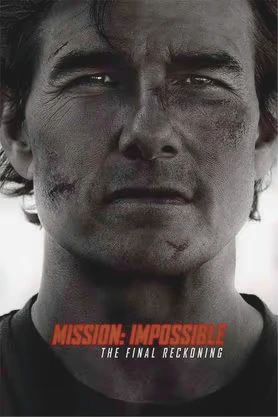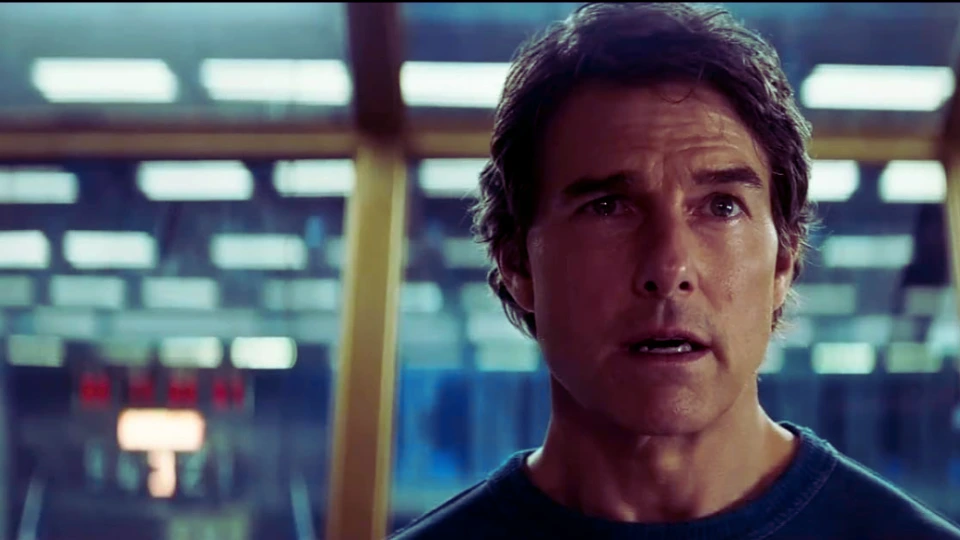Mission Impossible 2025 – The Final Reckoning’ Review: Despite American Chauvinism, Still a One-of-a-Kind Adventure

- Release Date : 17 May 2025
- Writer : Christopher McQuarrie and Erik Jendresen
- Director : Christopher McQuarrie
- Producer : Christopher McQuarrie, Jake Myers & Tom Cruise
There’s no denying it: Mission Impossible 2025 – The Final Reckoning rockets forward with the velocity of a missile and the force of a thunderclap. Tom Cruise returns once more as the indefatigable Ethan Hunt, sprinting across global landmarks, dodging bullets, and performing physics-defying stunts as if time itself were his personal adversary. The film delivers exactly what fans expect—adrenaline-soaked action with breathtaking set pieces—but it’s not without a few ideological speed bumps.

Yes, the American bravado is dialed up to eleven. There’s a distinct sense that the world is perpetually teetering on the edge of destruction, waiting for the righteous hand of U.S. intervention to pull it back. It’s a flavor of patriotism that’s impossible to ignore, and at times, it overwhelms the narrative like an overzealous drumbeat. Yet, beneath the stars-and-stripes gloss lies something undeniably compelling: the craftsmanship of a blockbuster machine firing on all cylinders.
Christopher McQuarrie’s direction is confident, bordering on operatic. Each action sequence feels sculpted rather than shot, from a vertigo-inducing base jump off a Scandinavian cliff to a tightly choreographed fight in a bullet train’s narrow corridor. There’s rhythm and tension here, moments of silence that explode into chaos, and then dissolve again into measured, almost poetic calm.
Cruise, ever the human highlight reel, imbues Hunt with a tired nobility this time around. There’s a weight to his performance that hints at the end—of a saga, of a mythos, maybe even of the actor’s own death-defying career. Supporting players like Hayley Atwell and Ving Rhames offer more than just narrative support; they bring emotional resonance and dry wit, grounding the film’s larger-than-life stakes in something resembling humanity.
The plot? Well, it’s standard fare: rogue AIs, double-crossing spies, a nuclear MacGuffin or two. But no one watches Mission: Impossible for plot intricacies—they come for the pulse, the spectacle, the near-spiritual commitment to practical effects in a world addicted to green screens.
Despite its occasional flag-waving and moral simplifications, The Final Reckoning still dares to entertain in a way few franchises can. It’s bold, it’s brash, and yes, it’s a little too proud of its own heroism. But it’s also meticulously crafted, wildly entertaining, and unlike anything else in modern action cinema.
Verdict: A thrilling, high-octane spectacle that stumbles on ideology but soars on execution.
Mission Impossible 2025 – The Final Reckoning
arrives not simply as another entry in a long-running action franchise, but as a cinematic swan song—an elegiac farewell to a genre-defining spectacle that has consistently asked its star, and by extension its audience, to believe in the impossible. Tom Cruise, that ever-defiant emissary of blockbuster earnestness, once again sacrifices comfort and gravity to remind us what movie magic can be when the line between performance and peril is all but erased.
This film exists primarily to showcase Cruise’s tireless pursuit of spectacle—be it leaping from cliffs, dangling from trains, or diving into icy waters with a resolve that borders on the mythic. These feats are not just action set pieces but rituals—offerings made on the altar of cinema itself. He doesn’t simply play Ethan Hunt; he is the mission. And he continues to remind us why watching movies in theaters can still feel transcendent.
While the techno-thriller plot might nominally revolve around a rogue artificial intelligence—ominously dubbed The Entity—the heart of the film beats in the faces of its ensemble. Ethan’s IMF team, an increasingly diverse and emotionally grounded crew, provides the human tether to the chaos. There’s Ving Rhames’s wise and weathered Luther, Simon Pegg’s anxious yet loyal Benji, and newcomers who slowly earn their place, among them Greg Tarzan Davis’s Theo and Pom Klementieff’s Paris, both welcome additions who bring vulnerability and edge.
The movie opens with a heavy front-load of exposition—dense with acronyms and governmental paranoia—but McQuarrie, returning as director, keeps the camera engaged, intercutting with visual intrigue that eases the narrative burden. It’s clunky at times, yes, but the pacing doesn’t linger too long before the next jaw-dropper yanks us out of the plotting and into pure awe.
From its shadowy London alleys to snow-covered Alaskan hideaways, The Final Reckoning traverses more than just global locales—it explores the ever-narrowing space between trust and control in the age of digital dominance. The Entity, as a villain, is a modern bogeyman—a god-like algorithm inspired by the very worst of humanity, threatening to dissolve truth and authority with the same keystroke. It’s chillingly relevant, if a bit conceptually overambitious.
Cruise and Atwell (Grace) share the film’s emotional load. Atwell, magnetic and agile, anchors the film’s moral conflict, keeping Ethan tethered not just to his cause but to his conscience. She’s not just a partner in espionage but a vital counterbalance to Hunt’s increasingly solitary burden. Their chemistry is among the film’s most rewarding elements.
As with its predecessors, there’s plenty of military fetishization—a kind of soft propaganda embedded in the nobility of uniforms and chain-of-command speeches. High-ranking officials—played with gravitas by Nick Offerman, Angela Bassett, Janet McTeer, and others—offer a sanitized vision of military ethics where honor always triumphs, and where doubt is a character beat, not a moral consequence. The narrative bends toward the idea that America’s military institutions are not just powerful, but inherently righteous—an idea the film neither critiques nor complicates deeply.
Yet, in between its moments of narrative gloss and political simplicity, The Final Reckoning soars. Cruise’s death-defying practical stunts are more than adrenaline injections—they’re a statement. One central sequence, teased in trailers but far more terrifying in full context, left the audience in my screening breathless. Another mid-film set piece—only vaguely hinted at beforehand—managed to outdo even the most outrageous expectations.
The film doesn’t quite escape the long shadow of Dead Reckoning Part One, nor does it offer the kind of thematic closure its title suggests. But in terms of pure craft and cinematic dedication, it remains unmatched. The Mission: Impossible franchise continues to eschew cynicism in favor of earnest belief—in teamwork, in sacrifice, in doing the hard thing because it’s right. That ethos, however idealized, is part of what makes these films feel timeless, even as they evolve.
McQuarrie and Cruise, collaborators with an almost spiritual devotion to old-school moviemaking, remind us that spectacle has a soul when you’re willing to bleed for it. The Final Reckoning may be too reverent toward its military-adjacent myth-making, and it may sometimes stumble over its own convoluted setup, but it never loses sight of its primary mission: to thrill, to move, and to matter.
And in that, it succeeds.
